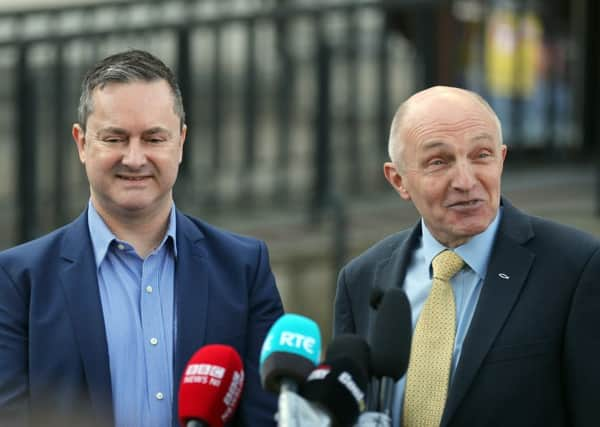Court seems to criticise Equality Commission over Ashers


Monday’s court ruling, while upholding the original judgement against Ashers, said that in the course of the hearing concern had been expressed about the commission’s role in pursuing the case.
“It was made clear to us that the commission recognised its role in ensuring that all elements of Northern Ireland society participate in the commercial space,” the judgement said. “To that end we have been assured that the commission is available to give advice and assistance to those such as the appellants who may find themselves in difficulties as a result of their deeply held religious beliefs.
Advertisement
Hide AdAdvertisement
Hide Ad“The only correspondence to the appellants that we have seen, however, did not include any offer of such assistance and may have created the impression that the commission was not interested in assisting the faith community where issues of this sort arose.
“It should not have been beyond the capacity of the commission to provide or for the provision of advice to the appellants at an earlier stage and we would hope that such a course would be followed if a situation such as this were to arise in future.”
Asked outside court on Monday about this part of the judgement, Michael Wardlow, the chief commissioner, said: “[The information seen by the court] was a small amount of information. The bulk of our work is actually working with employers and service providers. We have a wealth of information that is made available.
“On the back of the Ashers case about a year and a half ago we actually revised and made our offer much more focussed so every day we are having dozens of people phone saying how can I deal with this? How can I do that?
Advertisement
Hide AdAdvertisement
Hide Ad“We take on board that in that particular circumstance the judge felt we could have gone beyond. We did hope that this could have been settled without recourse to litigation.”
Mr Wardlow added: “The Equality Commission is not some police force. We not actually here to say ... to somehow to teach you manners. We are actually here to say the reason we have law is to allow people to know what their protections are. That is the purpose of equality legislation.”
Mr Wardlow said that the commission realised there were concerns that equality powers were growing at the expense of faith groups.
“If you feel it has gone too far then that is a purpose for the civic debate,” he said. “And we are up for the civic debate because we do realise that some people are saying there is some mission creep here, that we have only got involved in religion and politics. Not so.
Advertisement
Hide AdAdvertisement
Hide Ad“I think the judgement today was very clear. It said unequivocally that faith is important but faith cannot set aside equality legislation ...”
Mr Wardlow said that the commission had previously supported someone who thought they should not work on a Sunday, in a case that went to the House of Lords but that they lost.
Asked by the News Letter if their role in taking the Ashers case, which cost the commission £88,000, had been a good use of taxpayer funds, Mr Wardlow said: “Absolutely, and because at each stage of the journey ... we had a very small staged approach.
“We got legal advice on was this a discriminatory act. Our commission decided that it was based on legal advice, we tried to resolve it, it ended up in a lower court and we followed that through.”
Advertisement
Hide AdAdvertisement
Hide AdHe added: “We take a staged approach based on: is this a case that raises awareness of the legislation and challenges discriminatory practice and actually makes people aware of their rights, and we actually believe that the fact that this judgement confirmed our view actually justifies the expense.”